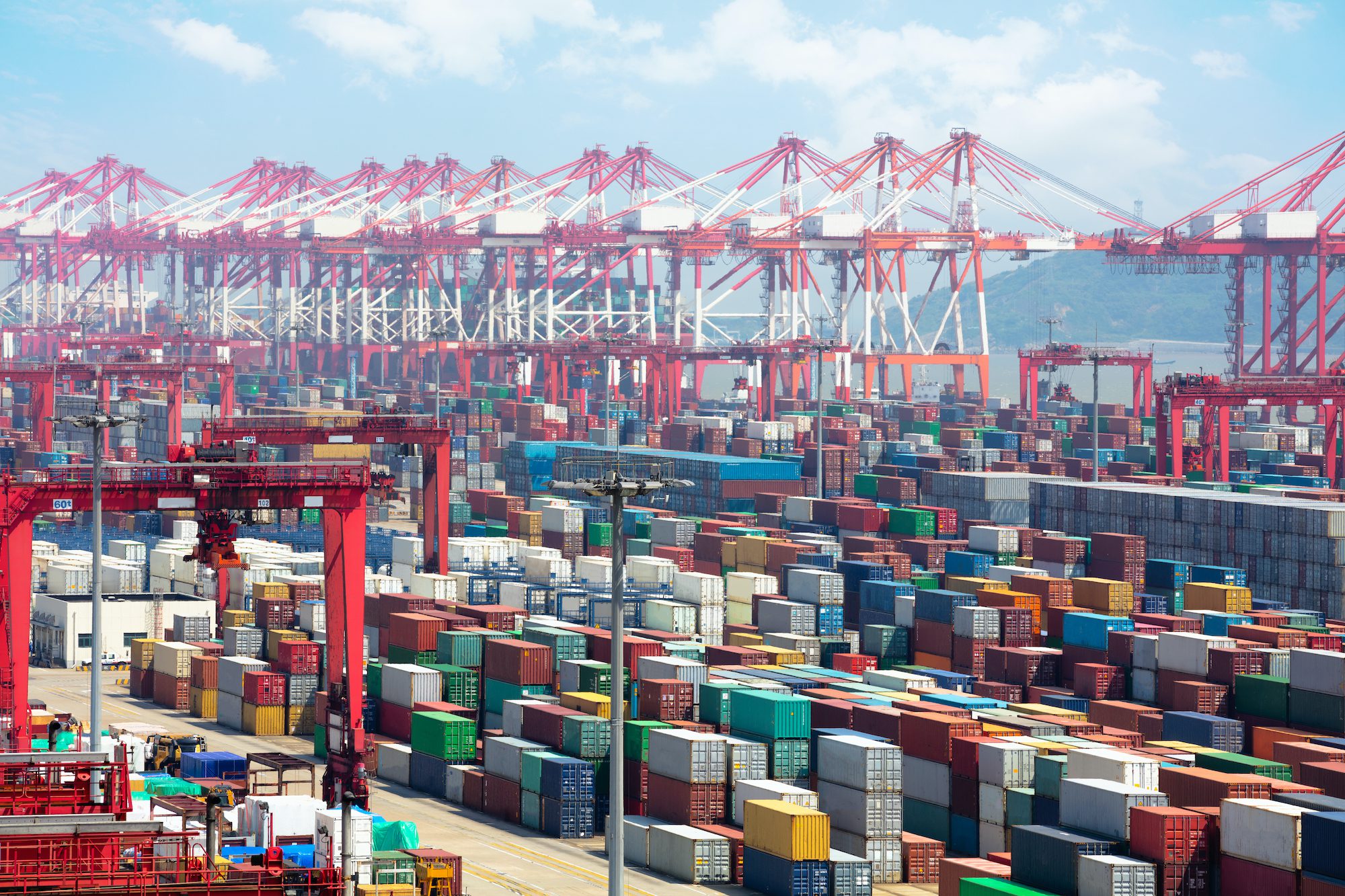By Bloomberg News
Apr 9, 2025 (Bloomberg) –China retaliated against new tariffs imposed by President Donald Trump by announcing it would raise duties on US goods, roiling markets and deepening a trade war between the world’s largest economies.
The Chinese government will impose an 84% tariff on all imports from the US starting April 10, the Finance Ministry said in a statement Wednesday. China’s move came hours after America’s steepest tariff in a century went into force, taking Trump’s duties on Beijing this year to 104%.
President Xi Jinping’s latest moves mirror the extra levies Trump put on Chinese goods as a punishment for Beijing’s last retaliation. With tariffs now soaring beyond the level economists say would decimate bilateral trade, any further duties would serve as a political statement rather than a way to apply economic pressure.
“China sent a clear signal today that the government will keep its stance on trade policies, despite the higher tariffs of the US,” said Zhang Zhiwei, president and chief economist for Pinpoint Asset Management Ltd. “I don’t expect a quick and easy way out from the current trade conflict. Meanwhile, the tariffs have become effective and the damage to the two economies will become visible soon.”
US equity futures fell more than 2% after China announced the new tariffs, a move that came after the Asian country vowed to “fight to the end.” Stocks in Europe slumped 4%. Beijing appears to have tweaked its tariff strategy, moving from answering immediately in the first two rounds to responding just as markets open in New York.
What Bloomberg Economics Says …
It won’t end well for either economy. For China, it will slam exports to the US, putting as much as 3% of GDP at risk … We expect Beijing to step up policy support for financial markets, fast-track stimulus and let the yuan depreciate in an orderly manner to support exporters.
Chang Shu, chief Asia economist
US Treasury Secretary Scott Bessent branded Beijing’s retaliation “unfortunate” in an interview with Fox Business, and urged China not to devalue the yuan, calling such a move a tax on the world. “The Chinese actually don’t want to come and negotiate, because they are the worst offenders in the international trading system,” he added.
Asked whether removing Chinese stocks from US exchanges was a retaliatory option for the administration, Bessent said that everything was on the table. He pointed to a pending review of capital export controls, and said Trump will decide.
While Trump’s tariffs have piled pressure on the Chinese export machine that last year contributed to about a third of growth, the US economy is also at risk. Goldman Sachs economists including Andrew Tilton wrote in a note that for 36% of US imports from China, American buyers have a “limited ability” to find alternative suppliers, even with substantial tariffs.
Xi hasn’t directly commented on Trump’s tariff hikes, but Liu Pengyu, spokesperson for China’s embassy in the US, on Wednesday shared a video of the top leader saying in 2020 that “intimidation or pressure will never work on the Chinese nation,” comments made on the 70th anniversary of China’s entry into the Korean War.
Tensions have spiraled between Washington and Beijing since Trump returned to the White House in January. The US president has yet to speak with his Chinese counterpart more than two months after his inauguration, with talks between the two sides stalled at lower levels dimming the prospect of a deal in the near term.
The two nations are also locked in a stalemate over China’s alleged role in the flow of fentanyl into America, which Trump cited as a reason for two previous rounds of tariffs. US support for the self-ruled island of Taiwan that China views as a breakaway province is another flashpoint in the relationship.
China hit a range of mostly defense related firms in its latest action, adding six firms including Shield AI Inc. and Sierra Nevada Corp. to its unreliable entity list and imposing export controls on a dozen American companies including American Photonics and BRINC Drones. Most of the firms do little business in China.
Chinese officials rushed to reassure the private sector as the trade spat worsened, with Premier Li Qiang telling a meeting of experts and entrepreneurs Wednesday that Beijing would work to expand domestic demand. In addition, he said that economy was resilient and maintained its upward momentum in the first quarter.
By not matching the full 104% imposed by Trump, Beijing has shown some restraint, according to Josef Gregory Mahoney, a professor of international relations at Shanghai’s East China Normal University.
“China has reinforced its image of not being bullied while also showing to the world that it’s not going to sink the same level of absurdity, above all when it’s unnecessary and likely theater anyway,” he added.
© 2025 Bloomberg L.P.

 Join The Club
Join The Club











